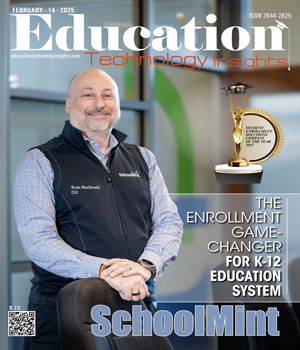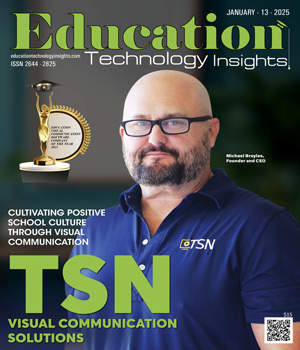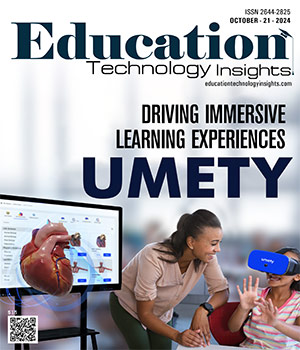THANK YOU FOR SUBSCRIBING
Be first to read the latest tech news, Industry Leader's Insights, and CIO interviews of medium and large enterprises exclusively from Education Technology Insights
Tech Breaks are Essential in School
Robert Dillon, Director of Innovative Learning, School District of University City
Understanding the Need for a Tech Timeout Robert Dillon, Director of Innovative Learning, School District of University City
Robert Dillon, Director of Innovative Learning, School District of University City
In an era where technology permeates every aspect of our lives, it's increasingly important to recognize the benefits of periodically disconnecting. For school leaders, addressing the challenge of excessive technology use among students is crucial for fostering environments conducive to holistic development. Continuous exposure to screens and digital devices can lead to a range of adverse effects, from diminished attention spans and disrupted sleep patterns to a lack of real-world social interactions. Moreover, the overuse of technology can hinder students' ability to engage deeply with learning material, reducing their capacity for critical thinking and problem-solving. Taking regular breaks from technology can help mitigate these issues, enhancing students' focus, creativity, and well-being. It encourages more meaningful engagement with the physical world and fosters stronger interpersonal relationships. For educators, promoting a balanced approach to technology use is essential in preparing students not only for academic success but for a healthy, well-rounded life.
Six Strategies for Implementing Tech Breaks
Digital Detox Days: Designate specific days or periods during the school week as technology-free. Encourage activities that do not require digital devices, such as reading physical books, outdoor sports, or art projects. This can help students appreciate and engage with non-digital forms of entertainment and learning.
Tech-Free Zones: Establish certain areas within the school as tech-free zones, such as the library, cafeteria, or specific outdoor spaces. These areas can become havens for students to socialize, relax, or study without the constant pull of digital notifications.
Mindfulness and Reflection Sessions: Incorporate mindfulness practices into the school routine, encouraging students to spend time in reflection, meditation, or simply being present. This can help them develop the skill of focusing their attention away from screens and on their inner thoughts and feelings.
“Future leaders must balance technological innovation with ethical responsibility, ensuring fairness, equity, and integrity in a rapidly evolving digital landscape”
Encourage Physical Activity: Promote clubs and activities that require physical involvement, such as sports teams, dance groups, or hiking clubs. Physical activity not only provides a break from technology but also supports mental and physical health.
Creative Arts Programs: Expand opportunities for students to engage in the creative arts, including music, drama, painting, and sculpture. These activities offer rich, hands-on experiences that foster creativity and imagination without relying on digital tools.
Community Service Projects: Organize community service or outdoor educational trips that require active participation and teamwork away from technology. Such initiatives can help students develop a sense of responsibility, cooperation, and connection to their community.
Conclusion
Instituting regular breaks from technology within educational settings can profoundly impact students' overall development, enhancing their academic performance, social skills, and well-being. By implementing these strategies, school leaders can guide students towards a more balanced and mindful use of technology, ensuring that when they do engage with digital tools, it's both effective and efficient.
Read Also
Building Future Leaders with Faith and Integrity
Virtualization as a Bridge For Multi-Campus Support
Building Practical Readiness in Cybersecurity Talent
The Liberal Arts to the Rescue
Faith Based Counseling Supporting Holistic Student Growth
Will ChatGPT End Higher Ed? Not So Fast

I agree We use cookies on this website to enhance your user experience. By clicking any link on this page you are giving your consent for us to set cookies. More info















-(2)-1.jpg)






